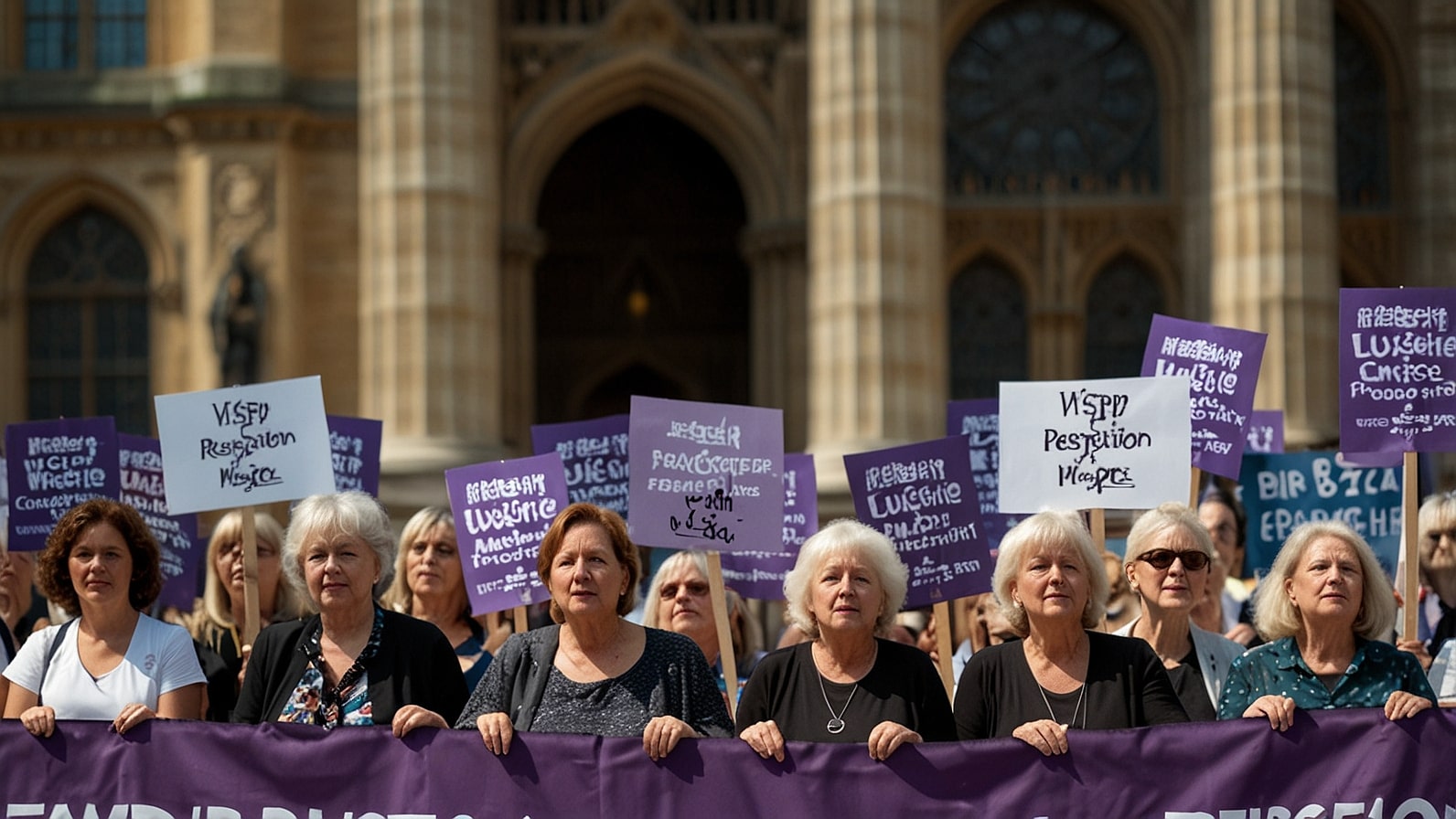
WASPI Compensation Payments Start Date
The Women Against State Pension Inequality (WASPI) campaign has been inspirational to millions of women born in the 1950s, who were negatively impacted by modifications to the State Pension age. Through years of tireless campaigning, the one question on the tip of many lips is: when will the WASPI compensation start? This paper examines current events, upcoming schedules, eligibility, and the benefits that will be gained by the affected women in 2025.
WASPI Campaign Background
The WASPI is a movement that symbolizes around 3.8 million women who were born between April 6, 1950, and April 5, 1960, and who endured high emotions and financial distress due to the sudden rise of the State Pension age by the government of England. The Pensions Act 1995 was introduced to equalize the pension age between men and women, which was initially 65 and later raised to 66 by 2018, accelerated by the Pensions Act 2011. Nonetheless, the Department for Work and Pensions (DWP) did not clearly explain to women how they would go about it, and most of them are not willing to wait until retirement.
In March 2024, the Parliamentary and Health Service Ombudsman (PHSO) ruled that the DWP had been negligent in its correspondence to the women, stating that this was maladministration and that a payout of 1,000 or 2,950 should be made to each affected woman. Nevertheless, both the former Conservative government and the current Labour government, under the stewardship of Work and Pensions Secretary Liz Kendall, have opposed the introduction of a compensation scheme on the grounds of the enormous expenditure required, which is estimated at £ 10.5 billion.
New Trends in the Payment of Compensation
By July 2025, there is still no exact start date of the compensation payments to WASPI. Yet, there is extensive improvement. In March 2025, the PHSO once again vindicated its judgments, calling on the government to form a system of compensation. Cross-party negotiations in Parliament in April and May 2025 proposed a payout plan with payments phased, where hypothetical early repayments could start in September 2025. The final selection criteria and financing plans are expected to be finalized between June and August 2025, with a complete launch anticipated in the fourth quarter of 2025.
The WASPI movement has also been gathering pace, with large trade unions such as Unison voting overwhelmingly in June 2025 to sign up to the cause of campaigning on compensation. A legal action seeking to challenge the government’s refusal to pay has also been crowdfunded to the tune of over 219,000 as the UK aims to reconsider the government’s decision not to pay. The High Court’s agreement to conduct this review is a landmark because the court would need approximately two to three months to deliberate on it.
Estimated Schedule of Payments and Eligibility
Although the exact date of implementation remains uncertain, it is reported that payments will be made as early as September 2025, and the system will be tiered, giving priority to those who have suffered the most. Women who qualify are likely those born between April 6, 1950, and April 5, 1960, and who can prove they are financially or emotionally distressed due to poor communication regarding pension age changes. The compensation values will range from 1,000 to 10,000, depending on the individual’s circumstances, and will not be subject to taxation; instead, they will be transferred directly into the bank accounts of the recipients.
Women should update their National Insurance records and provide accurate personal information to the DWP to qualify. When the window to make claims opens, possibly in August 2025, documentation may be required, including your birth date and evidence of financial loss. The WASPI campaign emphasizes the importance of obtaining information from official sources and the risks associated with falling victim to so-called compensation scams that promise compensation in exchange for providing personal information.
Political and Public Support
The political call and popular support for the cause of the WASPI are high. A petition demanding compensation received 161,790 signatures, a parliamentary debate on March 17, 2025, identified how urgent the issue was. Even though Labour initially refused to make promises about offering payouts, mounting pressure has been felt as the General Election is scheduled for July 2025. Others, such as former WASPI supporters, have stated that they will make it their priority if they are re-elected through Labour MPs.
The government’s refusal to compensate has been described by critics as unacceptable, with Rebecca Hilsenrath, the chief executive of the PHSO, stating that the recognition of maladministration without remedy undermines justice. The Liberal Democrats, as they were in government, and the former pensions minister Steve Webb, who supports them, have stated that legal challenges have a way to go because any change in pension age was legal, and the test is maladministration, not unlawfulness.
Looking Ahead
The stage of the WASPI compensation saga has reached a point where decisions must be made. As the judicial review begins and public pressure grows by the day, 2025 may be the year when millions of women will finally receive redress, long overdue. Women who are affected will be advised to remain active, check WASPI and DWP updates regularly, keep their records up to date, and avoid fraudulent schemes. Its longevity has already sparked a wider debate on the issue of pension policies’ transparency and government accountability, which may lead to further overhauls in the future.



 Bitcoin
Bitcoin  Ethereum
Ethereum  Tether
Tether  XRP
XRP  USDC
USDC  Solana
Solana  TRON
TRON  Lido Staked Ether
Lido Staked Ether  Cardano
Cardano  Avalanche
Avalanche  Toncoin
Toncoin